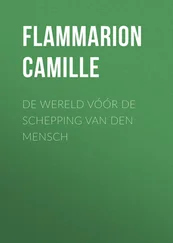One night the light from the hall splashes on the wall, on the drawing of Waialae Avenue, and I see the red headless figure floating toward me.
In my room, I pull my mother’s photo from my pillowcase and find myself in the slight droop in the corners of her eyes and in the curves of her nostrils. During an Internet Session, I watch a video of her standing on her ship deck, explaining an electrical phenomenon called St. Elmo’s fire, not uncommon on ships before a storm. In the video, St. Elmo’s is why all the antennae on her ship are glowing blue. I pause on an image of my mother standing near one of the antennae. Her head is tilted back, showing off the elegance of her neck. Her mouth is open and dark. Above her the bright blue end of the antenna looks like a hot poker or a magic wand.
* * *
At dinner, Rick sits with our Floor Group because he is supposed to be one of us now. I tell Rick that I’ve never been to Oregon before and ask what it’s like there. He says it’s big and empty and filled with rivers and forests and wild animals and rain. I think it sounds beautiful and frightening, Oregon.
I watch him eat rice and beans covered in a thick black sauce, and wonder how this compares to what he’s been eating outside the Hospital walls.
We listen to stories of Rick’s travels. He’s slept on roadsides and in fields and in barns. He’s been soaked with rain and waded through waist-deep snow. He’s killed fish with sticks and eaten them raw, felt their flesh shiver in his throat. He’s hitchhiked with people who let him sleep in the backseat and people who wanted to talk through the night and people who wanted to steal.
“Do you want to know the Laws of the Road?” he asks us, and then keeps going before anyone has a chance to answer.
I want to know about these laws.
The Laws of the Road include: Never turn down food or water. Lose your shame about what you are willing to eat. Never underestimate the usefulness of a towel. Lose your shame about where you go to the bathroom. The older the car, the better your chance of hitching a ride. Solo hitchhikers have better odds than those in pairs or groups. Avoid vans. Believe in your ability to keep walking forever. Lose your shame about where you sleep, but never fall asleep around strangers. Only sleep when you’re alone.
I want to know more, but other patients are less interested in the Laws of the Road. They cut in and ask Rick why he came here, how he found us.
Rick frowns. “Don’t you know about the chat room?”
We shake our heads. We know nothing about a chat room.
According to Rick, there is a chat room devoted entirely to the Hospital, to the special ones who have been hidden away for study. In this chat room, people share stories about the early days of the sickness, a person in a hazmat coming to their neighbor’s door and that neighbor disappearing — not dying, but going to some other mysterious place. In this chat room, there are rumors about a state psychiatric hospital in Kansas that has found a use again.
We lean back in our chairs, absorb this new information.
“I didn’t get sick,” Rick explains. “I knew this place was where I belonged.”
“But the sickness is over,” I say. “This isn’t the only safe place anymore.”
Rick laughs, his tongue black from the sauce.
“Nothing is over,” he says.
The Pathologist’s voice seeps into the room. A meditation. BREATHE DEEPLY THREE TIMES AND SAY I AM DOING JUST FINE.
All the patients in our Floor Group rest their hands on the table and take three breaths. Even Rick plays along.
“I am doing just fine,” we all say to each other, like that part of church where you turn to the congregants and say peace be with you , though I am starting to wonder if the Hospital is doing us about as much good as church — which is to say not much good at all.
* * *
I decide to start keeping my mandatory appointments with Dr. Bek, the ones I have been ignoring since the fall. I am drowning in questions. From the doorway of his office, I tell him that I want to start coming to my appointments, but first I want him to promise me something: no more electroencephalogram, no more tests. I just want to talk.
Dr. Bek is sitting at his desk. Behind him the Troll Wall rises through the fog.
“You don’t think talking is a test?”
He doesn’t look up from his computer screen. He moves the mouse around on a black pad. I wonder if he knows about what N5 said to me in the closet.
“I know things about this place,” I say.
“I’m aware you think you know things,” Dr. Bek says.
Finally he looks up and sits back in his chair. “Do you remember the appointment time you were given when you first came here? The one you have chosen all these months to ignore?”
I nod. “After lunch on Thursdays.”
“Come back then,” he says, and returns to looking at whatever is on the screen.
After lunch on Thursday, I go to Dr. Bek’s office. I sink down into the Venn chair. There is no sign of the electroencephalogram. He folds his gloved hands on his desk and begins in Oslo.
“In Oslo, there is a hospital that sits on a hill. It overlooks the water, the inner Oslofjord. In 1985, I was a much younger man. That year, Arne Treholt, a Norwegian politician, went on trial for spying. He had smuggled classified materials to the KGB and the Iraqis — not enough to sell our secrets to just one country. In the break room at the hospital, the trial was always on the news. I was fascinated by the case because Arne Treholt looked just like my father.”
I can’t imagine what all this has to do with our Hospital.
“What happened to him?” I ask.
“He was sentenced to twenty years, out in a decade. He moved to Cyprus and started writing books.” He leans forward in his chair, his suit groaning. “If you are asking about what happened to my father, that is a story for another time.”
I didn’t mean to ask about his father; I always think of mothers first.
Dr. Bek tells me about other things that happened that year in Norway. Parliamentary elections were held. A volcano on the Norwegian island of Jan Mayen erupted. He seems to enjoy talking about Norway, about home.
Jan Mayen has a nice sound to it. Maybe one day I would like to live in a place called Jan Mayen.
“I’ve never seen a volcano before,” I tell Dr. Bek.
“I know.” His mouth stays open and I see the damp mass of his tongue.
In 1985, he was thirty years old. In 1985, he got married and went to work at this hospital. It is not, however, the year when the most important part of this story takes place.
* * *
“The hospital on the hill was not a place where people went to get well,” Dr. Bek tells me during our next appointment. It was a hospital for people with troubled minds, troubles that could not ever be cured. He had been working at the hospital for seven years when a young woman with Creutzfeldt-Jakob was admitted.
In the beginning, this woman noticed herself stumbling more than usual. The toe of her shoe was always catching on the bottom stair or on patches of uneven sidewalk. When she woke, she was stiff as an old lady. All day the muscles in her legs twitched. She stopped sleeping. She grew confused. She tried to go to the grocery store in the middle of the night. At the bank, she could not remember her own address. Her speech turned thick and slow and she screamed at her husband, accused him of getting her drunk. She was admitted to an emergency room after she collapsed in a museum.
It was fall in Oslo, the season for picking berries and mushrooms, the season when the waters of the inner Oslofjord protect the city from the cold.
In the emergency room, the doctors performed a spinal tap and discovered the 14-3-3 protein, which suggested Creutzfeldt-Jakob. The diagnosis was supported by an MRI. One doctor described her diseased brain as a spider web where the threads were being pulled apart until they snapped. No one knew the cause: it wasn’t hereditary, as a small amount of Creutzfeldt-Jakob cases are, and infection by contamination, like a medical procedure or tainted food, was unlikely. She had never had an operation. She had not left Norway in fifteen years. It was sporadic Creutzfeldt-Jakob, where the cause is a mystery.
Читать дальше












